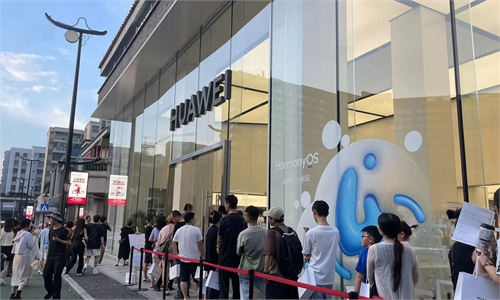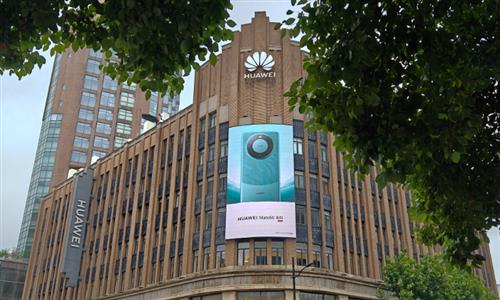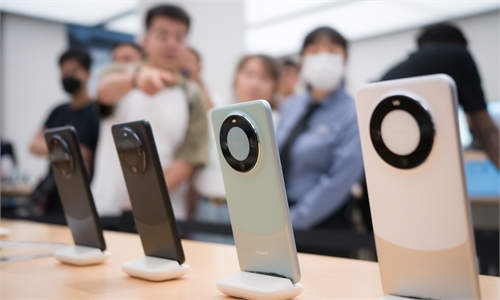Tightened curbs to further erode Qualcomm market share after Huawei breakthrough; price war may start soon: observers

chip Photo:VCG
The shockwaves caused by the sudden release of Huawei's Mate 60 Pro series have persisted over the past week. As more details emerge, it becomes increasingly evident that a significant breakthrough has been achieved in China's domestic chipmaking technology - a progress that the US has been striving to prevent from through intensified sanctions over the past years.
With the rise of Chinese chip players, industry observers anticipate a potential restructuring of the global industrial chain, which may bring more market challenges for US chip giants like Qualcomm, particularly if Washington persists with the ongoing sanctions.
Last week, the Chinese tech giant unexpectedly announced the start of preorders for the Mate 60 Pro smartphone. Huawei did not disclose any details over the chip yet, but some teardown reports showed that the phone is powered by a new domestic Kirin 9000s processor.
The return of Huawei's Kirin chips underscores the company's disruptive capabilities in design and manufacturing. This is poised to shake up the global semiconductor industry, posing challenges to players like Qualcomm and TSMC, Adela Guo, a research director at IDC Asia Pacific, told the Global Times on Thursday.
Qualcomm may face the most significant impact, according to an analysis drafted by TF International analyst Ming-Chi Kuo.
According to Kuo's report, Huawei is expected to fully adopt its own Kirin processors in new models starting from 2024. As a result, Qualcomm will lose all Huawei orders and face the risk of being ousted by non-Huawei Chinese brand customers due to Huawei's increased market share in smartphones.
The analyst estimates that Qualcomm's shipments of System-on-Chip to Chinese smartphone brands in 2024 will decrease by at least 50-60 million units compared with 2023.
Moreover, competition between MediaTek and Qualcomm is expected to intensify, particularly in the low- to medium-end segment, Adela Guo said, with a price war likely as the two will have to revitalize customer resources and clear inventory.
If details of Huawei's Kirin chips are confirmed, it shows that under special circumstances, domestic companies can basically form a semiconductor industry chain under the suppression of the US, and the effect of the suppression policy of the US needs to be re-evaluated, He Jun, a senior researcher of Anbound, an independent think tank, told the Global Times on Thursday.
Meanwhile, US politicians have been closely following the breakthrough and seemed unnerved. US National Security Adviser Jake Sullivan said during a White House press briefing on Tuesday that the US needs "more information about precisely its character and composition" to determine if parties bypassed US restrictions on semiconductor exports to create the new chip, according to an CNN report.
In a statement on Wednesday, Representative Mike Gallagher, a Wisconsin Republican who heads a congressional committee on China, called for a more aggressive approach toward China after the breakthrough, asking for an end to all US technology exports to Huawei and SMIC.
The breakthrough sounded a "clarion call" and offered strong confidence for domestic tech companies to face crackdowns, Adela Guo told the Global Times, as it shows that "we can ride through technological blockades and achieve independence.
Nevertheless, He Jun, the researcher, mentioned that the chip and its application market is a shared and open system. Only through cooperation can everyone share the market and leverage their strengths.
"The key point for Chinese companies to break through certain US government blockades is not to completely replace foreign companies, but to break the US blockade and gain more chips for cooperation," he said.
As to whether the US can subvert the semiconductor industry ecosystem on its own, John Neuffer, president of the US Semiconductor Industry Association, said that no country can reverse the chip supply chain, and the semiconductor industry needs China, according to Yuyuan Tantian, a social media user affiliated with state broadcaster CCTV, reported on Thursday.
"China is an important part of our supply chain and also a very large customer base for us," Neuffer said.




